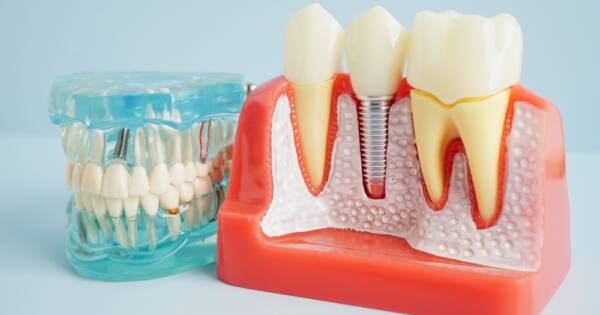Exploring options for dental implants can lead you to participate in clinical trials, potentially offering a cost-effective solution. Dental implant trials are usually conducted to test new technologies or methodologies, which might involve offering participants reduced or even no-fee treatment. Understanding the potential benefits and considerations can help you decide if participating in a dental implant trial is a viable choice for you.
Understanding Dental Implant Trials
Dental implant trials are a type of clinical research conducted to evaluate new advancements in dental technology or procedures. These trials aim to test the efficacy and safety of innovative dental implant solutions while offering practitioners the opportunity to gain insights from real-world applications. Participation in these trials often requires a thorough screening process to match candidates with suitable trials based on their dental needs and overall health status.
Participants might benefit from access to the latest dental treatments at a reduced cost. This arrangement can be mutually beneficial; researchers collect valuable data, while participants receive advanced care. It’s important to note, however, that participation usually includes regular follow-ups and monitoring to assess treatment outcomes and potential benefits over time.
Financial Advantages of Participating
A significant advantage of participating in dental implant trials can be the financial relief they might offer. Traditional dental implants are typically costly, often running into thousands of dollars. By joining a clinical trial, you could potentially receive implants at a fraction of the full market price. Some trials may even waive fees entirely, providing the implants and associated care without charges.
These financial benefits might extend beyond the initial procedure. Some trials additionally cover follow-up care, reducing the long-term costs often associated with dental implants. Having such expenses lessened or eliminated could greatly benefit those who might find the costs of traditional implant procedures prohibitive.
Moreover, undergoing treatment as part of a trial might provide insights into personalized care and attention from experienced dental professionals, adding value beyond mere cost savings.
Access to Advanced Treatments
Participating in a dental implant trial could offer not just savings but also early access to the latest dental technologies. Researchers and developers are continually working on new implant materials, techniques, and equipment designed to improve outcomes and patient experience. Having access to these innovations might mean that you receive more sophisticated and effective treatment options compared to traditional procedures.
Additionally, involvement in trials likely means being supported by a team of dental experts and researchers, ensuring high-quality care. This professional oversight can enhance patient safety and satisfaction, as specialized teams monitor the progress and address issues swiftly.
It is, however, important to ensure that any new technologies involved in the trial meet your specific dental needs and are aligned with your personal health priorities, which makes consulting with dental professionals essential before participation.
Considerations Before Joining a Trial
Before deciding to participate in a dental implant trial, there are several considerations to evaluate. Understanding the nature of the trial is crucial—what phase it is in, the specific goals, and what is expected from participants. This knowledge could impact the type of care you receive and the level of innovation being tested.
Enrollment typically involves a comprehensive screening process, where your eligibility will be assessed based on specific criteria such as oral health status and overall medical history. Engaging with your dental provider for guidance can provide further clarity on your suitability.
Additionally, it’s important to be aware of the potential unknowns, such as side effects or variations in treatment efficacy compared to standard procedures. Trials are carefully monitored, yet they may still involve unforeseen variables, which is why informed consent is critical.
Finding Dental Implant Trials
Locating dental implant trials that suit your needs often requires some study. Many universities and dental schools regularly conduct clinical trials as part of their academic programs. These institutions may offer valuable resources for finding and evaluating available trials.
Online platforms and clinical trial registries are other useful tools for identifying suitable trials. Websites such as ClinicalTrials.gov offer searchable databases where you can locate trials by region or specific treatment type.
Consultation with dental professionals or organizations within the dental industry might also provide leads on ongoing or upcoming trials. Networking within the dental community could reveal opportunities and offer support in evaluating your options.
Learn More Today
Participating in dental implant trials could be an advantageous path for those seeking cost-effective dental treatment and access to the latest innovations. By thoroughly evaluating the benefits, risks, and requirements, you might make an informed decision about joining a trial that aligns with your needs.
Alongside potential financial savings, participation presents an opportunity to contribute to the advancement of dental care. Engaging with expert guidance will enhance your understanding and could help you to confidently embark on a journey towards improved dental health and satisfaction.





